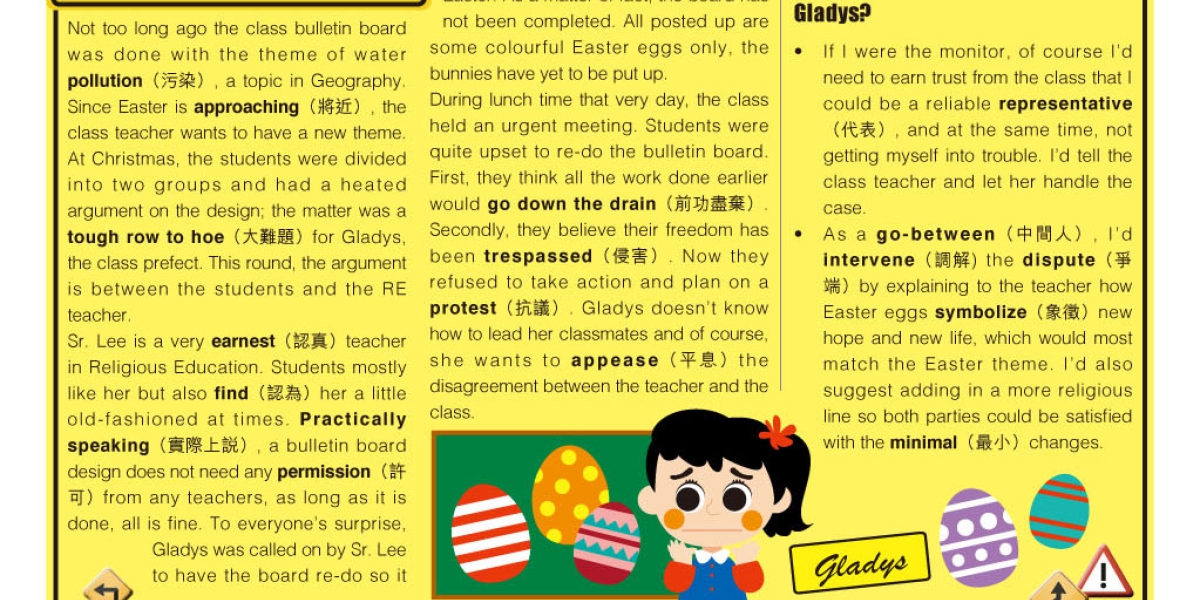昔日文章


Stories Behind Popular Sayings
2019.03.22
A fish out of water
On the 22nd of March, the United Nations (UN) celebrated the annual World Water Day. This year, the UN focuses on tackling the water crisis among people who have been marginalised so that no one is left without safe water.
Scientists say that water is the most important substance for life, not only for human beings but also for plants and animals. So, what would happen to a fish which is out of water? Fish need water more than we do because they live in the sea. If a fish is left on land, its gills will collapse and not be able to absorb oxygen. Feeling suffocated, the fish flaps and dies.
The expression “a fish out of water” is used figuratively to describe a person who is uncomfortable in an unfamiliar situation.
Johnny felt like a fish out of water(如魚離水;渾身不自在)at his new school.
The idea of this simile is first found in “The Canterbury Tales” (《坎特伯雷故事集》)written by a British poet, Geoffrey Chaucer, in the 15th century.
“Nor that a monk, when he is cloisterless,Is like unto a fish that’s waterless;”
In the story, Chaucer describes that the monk, one of the thirty pilgrims travelling to Canterbury, is rebellious. Thus, Chaucer does not think that when the monk lives outside the monastery, he is like a fish out of water.
Later, the current wording of the expression appeared in a work written by a British cleric, Samuel Purchas, in 1613.
“The Arabians out of the deserts are as fishes out of the water.”


Stories Behind Popular Sayings
2019.03.15
MIDAS TOUCH
Imagine one day God told you, “As you have done some good deeds, I will grant you a wish.” What would your wish be?
In Greek(希臘)mythology, Midas was a rich king who lived in a castle with his daughter. One day, the old, drunken teacher of the god Dionysus got lost near the castle. Midas found him and treated him with hospitality. When Midas took the teacher back to the god, the god was so pleased that he rewarded the king with a wish.
Midas asked that everything he touched would turn to gold. Although the god warned him to think carefully, Midas insisted because he wanted to be the richest man in the world.
On his way home, Midas tested the magic out. He touched branches, flowers and stones. Everything turned to gold instantly.
This myth gave rise to the famous idiom, the “Midas touch”, which nowadays means that someone becomes financially successful at whatever they do.
The businessman had the Midas touch (點石成金) , so he could turn a small company to a multinational enterprise.
Interestingly, the story had two different endings. Sadly, since whatever he touched, even food and his daughter, became gold, the wish had become a curse. The king died in loneliness and hunger.
The happy ending was that Midas realised that his greed had brought him despair.
So, he prayed to the god to remove the spell. The god heard his sorrow and told him to wash himself in a river. Since then, life was back to normal and Midas became a generous king.
Glossary
Good deeds
好事
Mythology
神話
Hospitality
親切招待
Financially
財務上
Curse
詛咒
Greed
貪婪
Despair
絕望


Stories Behind Popular Sayings
2019.03.08
Long time no see
How do you normally greet someone who you have not seen for some time? Examples include “How are you?” “How is everything?” “Long time no see.” Out of these three commonly-used fixed expressions, do you find the last one ungrammatical in the English language?
It is true that the casual greeting “long time no see”(or “long time, no see”)is not formed of a complete sentence structure. Scholars have tried hard to find the origin of this informal expression.
There are two possible origins of this fixed expression. Some scholars said that it might have been spoken by native North American Indians(北美印第安人). However, many scholars disagreed and argued that its origin was related to a loan translation from the Chinese language(好耐冇見;好久不見) when many Chinese immigrants lived in the USA in the 19th century.
One of the earliest printed versions appeared in British Lieutenant-Colonel James Campbell’s “Excursions, Adventures, and Field-Sports in Ceylon” in 1843. However, it was not used as a greeting.
“Ma-am—long time no see wife—want go to Colombo see wife.”
“Long time no see” is an example of pidgin English developed from a mixture of Chinese and English. Since it was used many centuries ago to tease immigrants in the Western countries who spoke English as a second language, today some Westerners are worried that this expression might be offensive or racist to Asian people. However, nowadays this phrase is popularly used among English-speaking people. There is no point to be over-sensitive as long as the speaker does not have any bad intentions.
Glossary
Loan translation
借譯
Immigrants
移民
Greeting
問候話
Pidgin
混雜語言
Offensive
冒犯無禮
Racist
種族歧視的
Over-sensitive
過度敏感
Intentions
意圖


Stories Behind Popular Sayings
2019.03.01
Propose a toast
The Academy Awards (or “Oscars”「奧斯卡金像獎」) ceremony for the film industry took place last Sunday. The post-awards party was held to celebrate the fantastic winners. In the star-studded party, the host said,
“I’d like to propose a toast to our winners. Cheers !”
In the English language, to “propose a toast” (or “make a toast”) is to request those present in the occasion to wish someone good health, happiness and success by raising their glasses of alcoholic drink.
The word “toast” refers to a slice of bread made warm and crispy under a high temperature. So, does it make more sense if we call holding up a glass of wine in honour of someone else “propose a drink” rather than “propose a toast”(祝酒;提議為……乾杯)?
It was a common practice in the medieval times that a piece of toast was put into the wine to make it tastier by soaking up some of the acidity. One of its earliest descriptions is found in the Shakespearean(莎士比亞)play “The Merry Wives of Windsor” published in 1602.
“Go fetch me a quart of sack; put a toast in’t.”
In modern English, this line means that the character is requesting a great deal of wine with a toast in it.
In 1746, the British novelist Henry Fielding explained clearly the term “toast” in his work:
“A toast, which you know is another word for drinking the health of one’s friend ... or some person of public eminence .”
Various cultures toast in different ways on occasions such as weddings, birthday parties and ceremonies. You may go to the internet to find out their toasting etiquettes.
Glossary
Star-studded
星光璀璨
Cheers
乾杯
Alcoholic
含酒精的
Medieval times
中世紀
Soaking up
吸收
Acidity
酸性
Eminence
顯赫
Etiquettes
禮節


